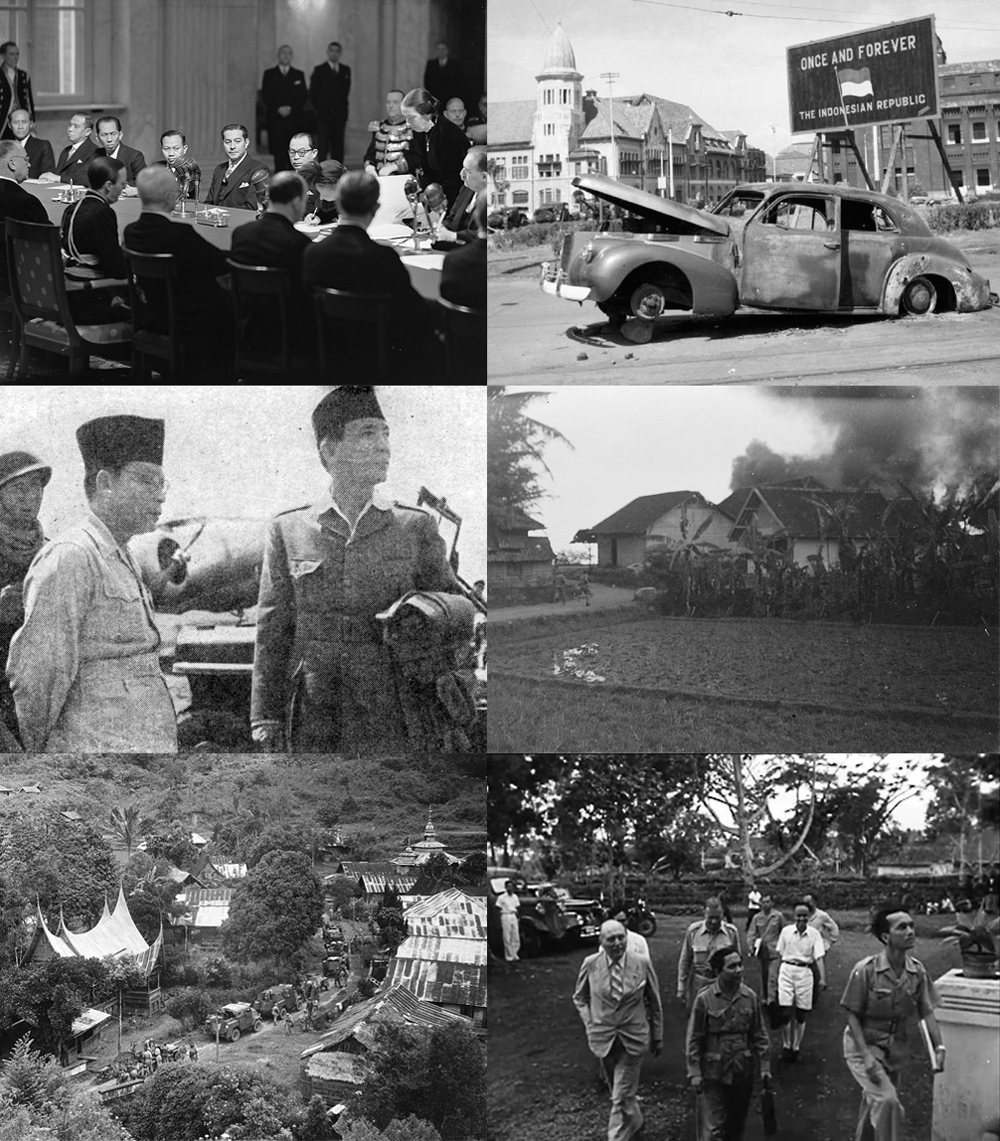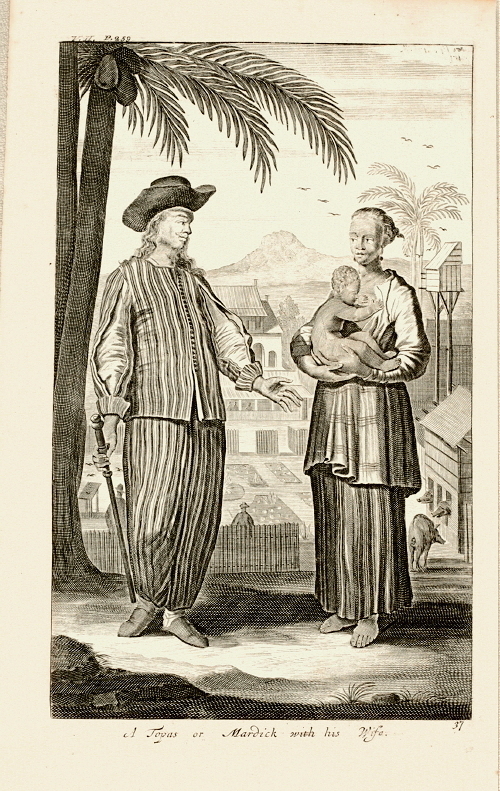|
Sonbai Kecil
Sonbai Kecil or ''Lesser Sonbai'' was an Atoni princedom in West Timor, now included in Indonesia. It existed from 1658 to 1917, when it merged into a colonial creation, the zelfbesturend landschap Kupang. Migration to Kupang Sonbai Kecil was originally a breakaway group from the united Sonbai (Sonba'i, Sonnebay) realm that dominated large parts of West Timor. The creation of the princedom was connected with the colonial rivalries of 17th century Indonesia. Sonbai allied with the Dutch East India Company (VOC) against the Portuguese in 1655. The VOC had a post in Kupang in the far west since 1653 and was engaged in warfare with Portugal, whose dominions included Larantuka on Flores and Lifau on the north coast of Timor. Part of the conflict was rivalry over the white sandalwood (santalum album), a precious item that grew in certain quantities on Timor. After a series of defeats at the hands of the Portuguese from 1657 to 1658, a part of the Sonbai congregation migrated to the Dutc ... [...More Info...] [...Related Items...] OR: [Wikipedia] [Google] [Baidu] |
Atoni
The Atoni (also known as the Atoin Meto, Atoin Pah Meto or Dawan) people are an ethnic group on Timor, in Indonesian West Timor and the East Timorese enclave of Oecussi-Ambeno. They number around 844,030. Their language is Uab Meto. The Atoni live in villages consisting of 50 to 60 people, each village is surrounded with stone fence or shrubs, with fields and cattle cages on the periphery. The houses usually form a circular cluster, or following the road after the introduction of a road. Spatial symbolism According to ethnographer Clarke Cunningham, their culture is notable for its spatial symbolism, associated with a gender dichotomy. Male-female principle is important, as with the duality of sun-earth, light-dark, open-close, dry season-wet season, outer-inner, central-periphery, secular-sacral, right-left, and so on. This in turn affects the spatial configuration of an Atoni house. The right side of the house (facing the door) is always male, whereas the left is female. Th ... [...More Info...] [...Related Items...] OR: [Wikipedia] [Google] [Baidu] |
Indonesian National Revolution
The Indonesian National Revolution, or the Indonesian War of Independence, was an armed conflict and diplomatic struggle between the Republic of Indonesia and the Dutch Empire and an internal social revolution during postwar and postcolonial Indonesia. It took place between Indonesia's declaration of independence in 1945 and the Netherlands' transfer of sovereignty over the Dutch East Indies to the Republic of the United States of Indonesia at the end of 1949. The four-year struggle involved sporadic but bloody armed conflict, internal Indonesian political and communal upheavals, and two major international diplomatic interventions. Dutch military forces (and, for a while, the forces of the World War II allies) were able to control the major towns, cities and industrial assets in Republican heartlands on Java and Sumatra but could not control the countryside. By 1949, international pressure on the Netherlands, the United States threatening to cut off all economic ... [...More Info...] [...Related Items...] OR: [Wikipedia] [Google] [Baidu] |
Funai
is a Japanese consumer electronics company headquartered in Daitō, Osaka. Apart from producing its own branded electronic products, it is also an OEM providing assembled televisions and video players/recorders to major corporations such as Sharp, Toshiba, Denon, and others. Funai supplies inkjet printer hardware technology to Dell and Lexmark, and produces printers under the Kodak name. Its United States-based subsidiary Funai Corporation, Inc., based in Torrance, California, markets Funai products in the US, along with Funai-licensed brands including Philips, Magnavox, Emerson Radio, and Sanyo. Funai is the main supplier of electronics to Walmart and Sam's Club stores in the US, with production output in excess of 2 million flat-panel televisions during the summertime per year for Black Friday sale. History Funai was founded by Tetsuro Funai, the son of a sewing machine manufacturer. During the 1950s before the company was formed, Funai produced sewing machines and wa ... [...More Info...] [...Related Items...] OR: [Wikipedia] [Google] [Baidu] |
HMS Bounty
HMS ''Bounty'', also known as HM Armed Vessel ''Bounty'', was a small merchant vessel that the Royal Navy purchased in 1787 for a botanical mission. The ship was sent to the South Pacific Ocean under the command of William Bligh to acquire breadfruit plants and transport them to the West Indies. That mission was never completed owing to a 1789 mutiny led by acting lieutenant Fletcher Christian, an incident now popularly known as the mutiny on the ''Bounty''. The mutineers later burned ''Bounty'' while she was moored at Pitcairn Island. An American adventurer helped land several remains of ''Bounty'' in 1957. Origin and description ''Bounty'' was originally a collier, ''Bethia,'' reputedly built in 1784 at Blaydes Yard in Hull, Yorkshire in England. The Royal Navy purchased her for £1,950 on 23 May 1787 (), refit, and renamed her ''Bounty.'' The ship was relatively small at 215 tons, but had three masts and was full-rigged. After conversion for the breadfruit expedi ... [...More Info...] [...Related Items...] OR: [Wikipedia] [Google] [Baidu] |
William Bligh
Vice-Admiral William Bligh (9 September 1754 – 7 December 1817) was an officer of the Royal Navy and a colonial administrator. The mutiny on the HMS ''Bounty'' occurred in 1789 when the ship was under his command; after being set adrift in ''Bounty''s launch by the mutineers, Bligh and his loyal men all reached Timor alive, after a journey of . Bligh's logbooks documenting the mutiny were inscribed on the UNESCO Australian Memory of the World register on 26 February 2021. Seventeen years after the ''Bounty'' mutiny, on 13 August 1806, he was appointed Governor of New South Wales in Australia, with orders to clean up the corrupt rum trade of the New South Wales Corps. His actions directed against the trade resulted in the so-called Rum Rebellion, during which Bligh was placed under arrest on 26 January 1808 by the New South Wales Corps and deposed from his command, an act which the British Foreign Office later declared to be illegal. He died in London on 7 December 1817 ... [...More Info...] [...Related Items...] OR: [Wikipedia] [Google] [Baidu] |
Battle Of Penfui
The Battle of Penfui took place on 9 November 1749 in the hillside of Penfui, near modern Kupang. A large Topass army was defeated by a numerically inferior Dutch East India Company force following the withdrawal of the former's Timorese allies from the battlefield, resulting in the death of the Topass leader Gaspar da Costa. Following the battle, both Topass and Portuguese influence on Timor declined, eventually leading to the formation of a boundary between Dutch and Portuguese Timor which precipitated into the modern border between West Timor and East Timor. Background Following the loss of Malacca to the Dutch in 1641, the Portuguese there moved to Gowa- Kingdom of Tallo before they were expelled from there as well, forcing the remnants to move to either Dutch Batavia or Portuguese-controlled Timor and the Solor Archipelago. Portuguese presence in the region had started since 1520 when they established Lifau, and was largely represented by the Topasses – "black Portuguese" ... [...More Info...] [...Related Items...] OR: [Wikipedia] [Google] [Baidu] |
Emperor
An emperor (from la, imperator, via fro, empereor) is a monarch, and usually the sovereign ruler of an empire or another type of imperial realm. Empress, the female equivalent, may indicate an emperor's wife ( empress consort), mother ( empress dowager), or a woman who rules in her own right and name ( empress regnant). Emperors are generally recognized to be of the highest monarchic honor and rank, surpassing kings. In Europe, the title of Emperor has been used since the Middle Ages, considered in those times equal or almost equal in dignity to that of Pope due to the latter's position as visible head of the Church and spiritual leader of the Catholic part of Western Europe. The Emperor of Japan is the only currently reigning monarch whose title is translated into English as "Emperor". Both emperors and kings are monarchs or sovereigns, but both emperor and empress are considered the higher monarchical titles. In as much as there is a strict definition of emperor ... [...More Info...] [...Related Items...] OR: [Wikipedia] [Google] [Baidu] |
Amarasi
Amarasi was a traditional princedom in West Timor, in present-day Indonesia. It had an important role in the political history of Timor during the 17th and 18th century, being a client state of the Portuguese colonialists, and later subjected to the Netherlands East Indies. History The origins of Amarasi are recounted in various legends. The oldest available version says that the dynastic line originated from Wehali, the traditional political navel of Timor in Belu. A member of a local family, Nafi Rasi, accidentally broke a valuable bowl and was forced too flee the wrath of his siblings. With his followers he went to Beboki-Insana to the north of Wehali, and thence to the south coast of West Timor.Geerloff Heijmering, 'Bijdragen tot de geschiedenis van Timor', ''Tijdschrift voor Nederlandsch-Indë'' 9:3 1847. There he founded a princedom with help of firearms that he had acquired in Beboki-Insana, which in turn lay close to the land of the Topasses (Portuguese mestizo populat ... [...More Info...] [...Related Items...] OR: [Wikipedia] [Google] [Baidu] |
Topasses
Topasses (Tupasses, Topas, Topaz) were a group of people led by the two powerful families – Da Costa and Hornay – that resided in Oecussi and Flores. The Da Costa families were descendants of Portuguese Jewish merchants and Hornay were Dutch. The origins The etymology of the name is obscure. It might come from the Tamil term ''tuppasi'', "bilingual" or "interpreter". But it has also been associated with the Hindi word ''topi'' (hat) which refers to the characteristic hat worn by the men of this community as a marker of their cultural attachment to the European community. Hence, they are also referred to as ''gente de chapeo'' in Portuguese accounts or as ''gens à chapeau'' in French accounts. It partly overlapped with the Dutch concept mardijker, "free men", who also usually had a Portuguese cultural background, but had no European blood in their veins. While the mardijkers served under the Dutch colonial authorities, the topasses of Timor were staunchly opposed to the ... [...More Info...] [...Related Items...] OR: [Wikipedia] [Google] [Baidu] |






